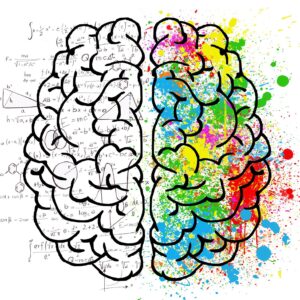Artificial intelligence (AI) is revolutionizing the way we live and work. AI, the branch of computer science that seeks to develop intelligent machines, is making our lives easier and more efficient. AI technologies are being integrated into every aspect of our lives, from healthcare to transportation and even entertainment. AI has been changing the world we live in, and it’s only going to become more pervasive as time goes on. And yet, AI is maybe one of the most misunderstood concept in Information Technology.
What is Artificial intelligence?
AI is often defined as “the ability of a computer program or a machine to think and learn.” However, this definition easily generates confusion. In our minds, “think” and “learn” are usually associated to concepts such as creativity, and consciousness. But AI actual creativity is to be debated, and consciousness is something else entirely. AI is an algorithm, an algorithm that allows a computer system to perceive, synthesize, and infer information.
AI is the development of computer systems meant to able to complete tasks are usually considered requiring “human intelligence”. AI is not something new: its formal birth is 1956.
AI can be very effective to automate routine tasks, sometime even very complex ones. AI can also be used to analyze data, predict outcomes, and identify patterns.
Where is AI used?
Today, AI is already being used in many different industries. In healthcare, AI is being used to diagnose illnesses and track patient health. In the automotive industry, AI is being used to design self-driving cars and to help optimize fuel efficiency. In the entertainment industry, AI is being used to create immersive virtual and augmented reality experiences. AI is even being used in the financial sector to automate investment decisions and to detect fraud.
AI is also making our lives easier by automating mundane tasks. For example, AI-enabled chatbots can answer customer questions, freeing up customer service representatives to focus on more complex tasks. AI-powered virtual assistants can also help users with daily tasks, from scheduling appointments to ordering groceries. AI is also enabling us to have access to better and more personalized experiences. For example, AI-based recommendation engines allow us to get personalized product recommendations based on our past purchases and searches.
AI is also being used to create new opportunities for businesses. AI-powered analytics can provide insights into customer behavior and preferences, allowing businesses to better target their audiences and optimize their services. AI-enabled automation can also help businesses increase efficiency and reduce costs.
AI is revolutionizing the way we live and work. It’s making our lives easier and more efficient, and it’s opening up new opportunities for businesses. AI is only going to become more pervasive as time goes on, but it’s up to us to use it responsibly and ethically. AI offers tremendous potential for improving our lives and our world, and it’s up to us to make the most of it.
Artificial Intellicence limits and drawbacks
It’s important to remember that AI is not perfect and that it comes with its own set of limits and drawbacks.
AI is limited in its ability to think and make decisions. AI systems are designed to learn from data and experience in order to make decisions, but they are not capable of the same level of problem-solving that humans can do. AI systems can’t think outside of the box and come up with novel solutions to problems. This is because AI systems are only as good as the data and programming that went into them, and the range of data and programming that can be provided is limited.
In addition, AI systems are limited in their ability to understand and interpret the world around them. AI systems can “see” and “hear” through sensors and cameras, but they cannot interpret the meaning of what they see and hear as well as a human can. For example, an AI system may be able to recognize objects in an image, but it cannot infer what the objects are being used for and the context of the photo. This limitation can be a big problem in certain applications, such as self-driving cars, where the AI system needs to understand the environment better in order to make safe decisions and navigate properly.
Another limitation of AI systems is that they are susceptible to bias and errors. AI systems learn from data, and if the data is biased or incorrect, the AI system will learn the wrong information and make the wrong decisions. This is why it’s important to ensure that AI systems are given accurate and unbiased data in order for them to make the most accurate decisions.
Finally, AI systems are limited in their ability to adapt to new situations. AI systems are programmed to follow certain rules and algorithms, and if the environment or task changes, the AI system may not be able to adjust. For example, an AI system that was trained to recognize objects in photos may not be able to recognize a new type of object if it has not been trained on that type of object.
In conclusion, AI is an amazing technology that has made great strides in advancing our lives, but it is important to remember that it is not perfect and has its limits. AI systems are limited in their ability to think, understand and interpret the world, as well as their ability to adapt to new situations and avoid bias and errors. It’s important to be aware of these limitations and to account for them when using AI systems.





